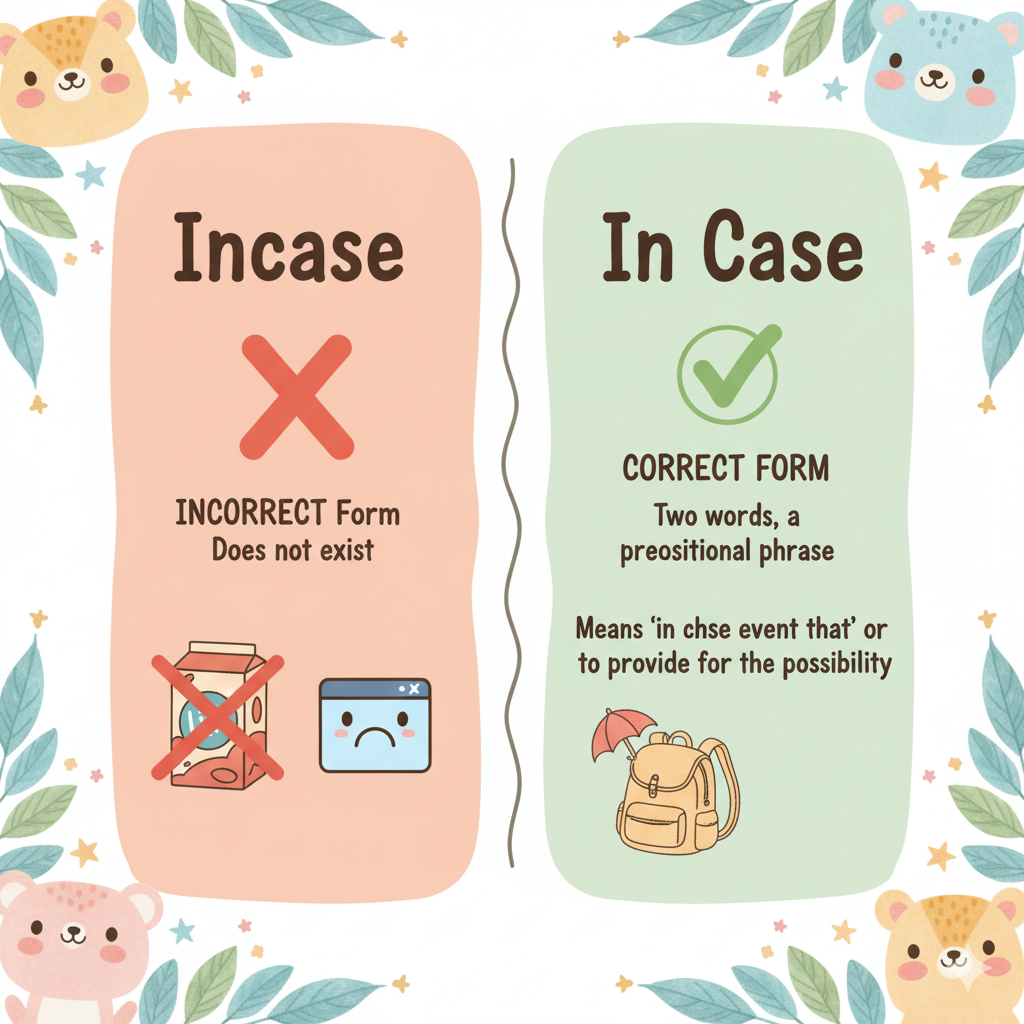Incase vs. In Case

Have you ever written “incase” and wondered if it’s correct?
You’re not alone — this is one of the most common spelling mix-ups among English learners.
Let’s clear it up with Midoo AI:
Only “in case” is correct in standard English.
“Incase” is almost always a spelling mistake.
In Case — The Correct Phrase
Definition:
“In case” is a two-word phrase used to mean “as a precaution” or “if something happens.”
Examples:
- Take an umbrella in case it rains.
- I wrote down her number in case I forget it.
- Bring extra cash in case the store doesn’t take cards.
- I packed medicine in case anyone gets sick.
- Save the file twice in case the computer crashes.
Tip:
If you want to say “to be prepared for something that might happen,” always use in case (two words).
Incase — A Common Error (and a Rare Word)
Definition:
“Incase” as one word is almost always a misspelling of “in case.”
There is a rare verb “to incase” meaning “to enclose or cover,” but it’s extremely uncommon in modern English and usually spelled “encase.”
Examples (rare):
- The fossils were incased in rock.
- The diamond was incased in glass.
⚠️ In everyday writing, people almost never use this form. Use encase instead.
Tip:
If you’re not talking about covering something inside a case, don’t use incase. It’s likely a typo.
Quick Memory Trick
- In case → use when talking about being prepared
- Incase → almost always wrong (use encase if you mean “cover”)
Example:
- I carried a jacket in case it got cold. ✅
- I carried a jacket incase it got cold. ❌
FAQS
Q: Is “incase” ever correct?
A: Only as a rare verb meaning “to enclose,” but this is outdated. Use encase instead.
Q: Should I use “in case” in formal writing?
A: Yes. It’s the correct and standard form.
Q: Why do people write “incase”?
A: Because of fast typing or thinking it’s a single word, but it’s a common mistake.
Final Tip from Midoo AI
If you want to say “just to be safe”, always write it as in case (two words).
Whenever you’re unsure, separate the words — it’s almost always correct. ✨